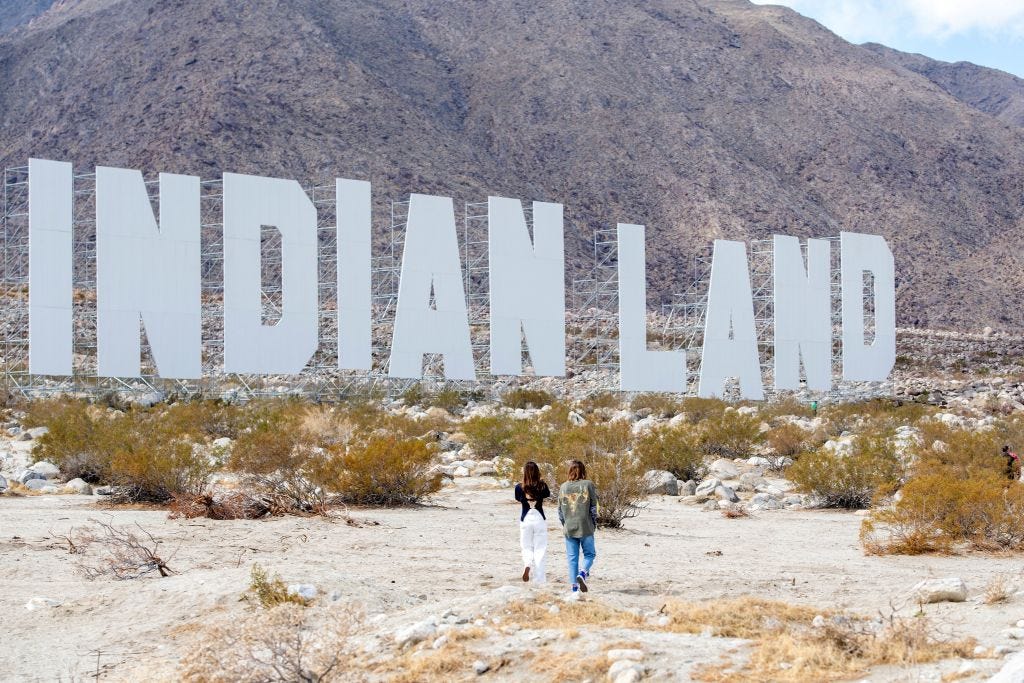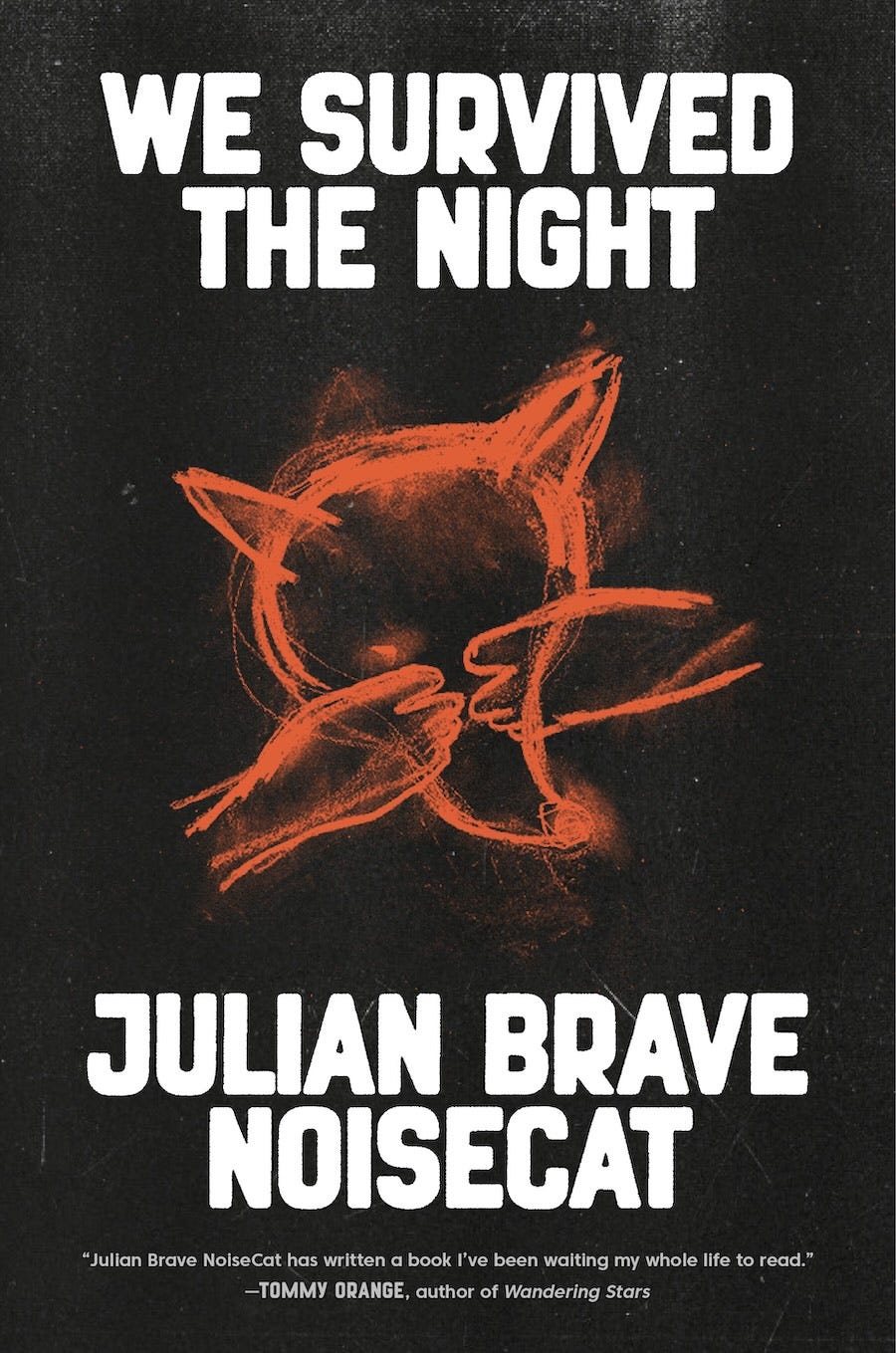BOOK CLUB: Whose promised land?
Julian Brave NoiseCat's "We Survived the Night" asks who benefits from the economic development of Indian land
There is a chapter in Julian Brave NoiseCat’s We Survived the Night — the Ink Book Club’s November pick — entitled “Exodus,” a beautifully written melding of history and reportage that uses the experience of the Cree People in Quebec to illustrate that the forced exodus of Indigenous people “continues still.” NoiseCat observes that while “the Israelites wandered the wilderness for forty years before Moses led them to the Promised Land,” it took the Ouje-Bougoumou Cree seventy years before Abel Bosum, grand chief of the Grand Council of Crees, was finally able to establish a permanent reserve for them in 1992.
As NoiseCat writes, the commonly held view is that North America’s First Peoples were “dispossessed and displaced a long time ago” — and a study led by Yale sociologist Justin Farrell found that American Indian and Alaska Native tribes and Native Hawaiians have lost 98.9 percent of their lands since contact; in Canada First Nations peoples hold only 0.2 percent of their original territory. But the truth is that expropriation is still going on, wherever “Indians find themselves atop a parcel of land or pile of minerals that might make someone else rich.”
BlackRock Metals now threatens the Cree reserve with a proposal to level the mountain called Gawashebuggidnajj, where Bosum settled his tribe and where they still hunt moose, to create an open-pit mine to extract titanium, vanadium, and iron — “a two-mile-long hole in the ground.” Ironically, as NoiseCat writes, this would be done in the name of progress — these minerals would be used to make batteries, wind turbines, and electric vehicles, as part of the transition to clean energy technology.
The Cree people have profound misgivings about the prospect of “the desecration of familial territory,” yet some feel development is inevitable and are cooperating with BlackRock, “that they should make the best of bad circumstances — an Indigenous predicament as old as colonization.” Meantime, families are divided over their stances on the BlackRock initiative, often causing serious rifts among relatives. But the community remains in limbo; as of NoiseCat’s writing, the $1 billion the company needs to move forward has yet to be secured.
A vivid portrait of the Cree lifestyle emerges from these pages. NoiseCat interviewed 88-year-old Maggie Wapachee—among others—for this chapter. She speaks only Cree, so NoiseCat relied on a translator in his talks with her. She offered that, unlike so many of her age, she wasn’t sent off to a residential school, but learned “the skills of Cree womanhood” from her mother. These included “knowing how to skin a beaver,” (apparently the tail is the delicacy); “scrape, stretch, and smoke a moose hide; make clothes and moccasins from leather; knit a fish net; clean an animal and a house.” Once her education was complete, her marriage to her husband Matthew was arranged.
What does “progress” mean for Indigenous people? NoiseCat wonders. “What is ‘progress’ in a world constantly asking First Peoples to give up shining, golden mountains so that someone somewhere else can build things — and riches — out of our hunting grounds and lifeways?”
The exodus continues — but whose is the promised land?
Join us this Wednesday, November 12, at 12:30 p.m. Eastern for a special Ink Book Club live conversation with Dopesick author Beth Macy to talk about the need for fresh leadership and her new book, Paper Girl. Then, on Wednesday, November 19, at 12:30 p.m. Eastern, we will sit down for the first of two Ink Book Club live conversations with Julian Brave NoiseCat.
In the meantime, be sure to pick up your copy of We Survived the Night, if you haven’t already, and if you want to jump into the story more quickly, we encourage you to watch NoiseCat’s documentary film Sugarcane (streaming on Hulu, or you can rent it from Apple TV, Fandango, or Prime Video). Either way, let us know your reactions, thoughts, and questions in the comments.
And below, for our Book Club members, we’ve got some questions of our own to get you thinking as you begin reading.
The Ink Book Club is open to all paid subscribers to The Ink. If you haven’t yet become part of our community, join today. And if you’re already a member, consider giving a gift or group subscription.






